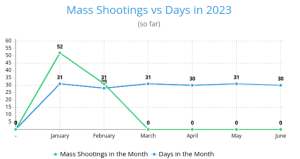Decisions around abortion pills should be a state’s choice
Creative Commons image from Unsplash by Gayatri Malhotra
Someone at a protest holds a handcrafted sign that fights for the right to abortion. Not only should abortion rights be more tailored toward the people of a state, it is common healthcare.
June 2, 2023
The topic of abortion remains deeply divisive in the United States and should not be left to the federal government. Each state’s government should have the right to decide whether or not to ban mifepristone. Driver’s licenses, marriage licenses, car registration and more are left up to the state, healthcare should not be different.
Mifepristone is one out of two abortion pills in the United States and is responsible for over 50% of abortions. Abortion pills are pills that professionals prescribe to terminate a pregnancy in its early stages. Of the two abortion pills, mifepristone is the safest and has the least side effects while being the most effective.
A judge in Texas put a pause on the distribution of mifepristone because he believes that the FDA was wrong and careless when they approved this pill. He claims that safety regulations were ignored and the case is now being taken to the Supreme Court.
“It should be a state-by-state decision because if it’s a federal decision, it could end up blocking it altogether,” senior Chase Rustin said.
The United States federal system of governance values the principle of state autonomy, allowing states to enact laws that align with the values and preferences of their residents. Granting states the authority to decide on abortion pill regulations respects the diversity of opinions and moral perspectives across the country. This approach recognizes the importance of tailoring policies to local contexts and allowing states to reflect the will of their residents.
Junior Ella Malecek said, “[Abortion] is basic healthcare, what more would it be?”
States possess unique demographic, cultural and healthcare landscapes that may require different approaches to reproductive healthcare. Allowing states to decide on mifepristone restrictions acknowledges these variations in public opinion, healthcare infrastructure, and regional requirements. Such flexibility enables states to design policies that address the specific needs and beliefs of their residents, fostering a more nuanced and responsive approach to reproductive healthcare.
Devolving decision-making power to states fosters greater democratic participation at the local level. Citizens can engage with state legislatures, participate in public debates and influence policies that directly impact their lives. By allowing states to determine mifepristone regulations, individuals have a more accessible avenue to advocate for their positions and engage in the democratic process.
“At a federal level it could possibly ban it throughout the entire country,” senior Abby Speckman explained.
The United States celebrates the value of individual liberties and pluralism. Recognizing the diverse beliefs and moral convictions surrounding abortion, allowing states to regulate abortion pills respects the autonomy of individuals and institutions with differing views. This approach ensures that personal and religious freedoms are safeguarded, fostering a society that respects a range of perspectives.
Debates surrounding abortion pills and reproductive rights evoke strong emotions and deeply held convictions. Acknowledging the principles of federalism, state autonomy and individual liberty, it is reasonable to entrust the regulation of abortion pills to states. Such an approach respects the diversity of opinions, tailors policies to local contexts, encourages democratic participation, and fosters innovation. While striking a balance between state and federal authority is a complex endeavor, empowering states to decide on abortion pill restrictions ensures a more nuanced and democratic approach to this contentious issue.













